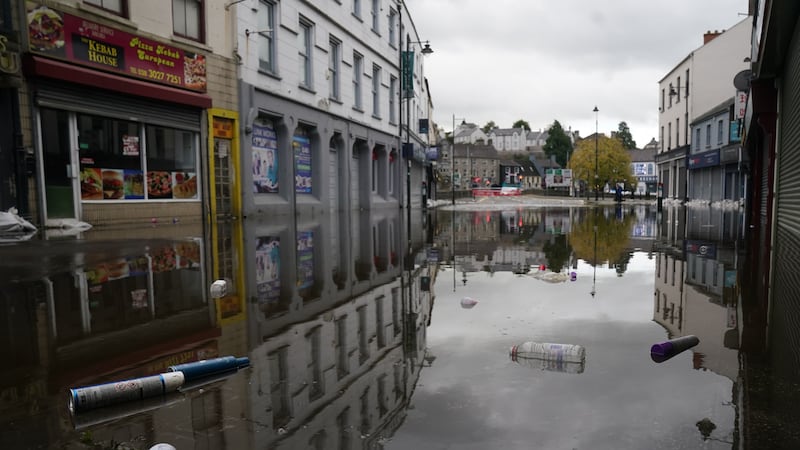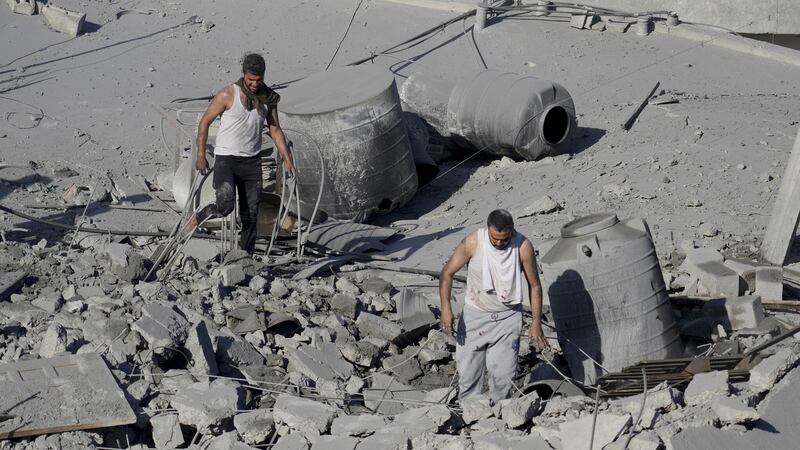IT’S been a month since the horrific Hamas attack on Israel which saw 1,400 Israelis and foreign nationals brutally killed, thousands injured and more than 200 people, including women and children, forcibly taken into Gaza.
In that same period more than 10,000 Palestinians have been killed in Gaza, including more than 4,000 children. 10,000 deaths is a grim milestone that should never have been reached.
Day after day we hear horrendous reports from our local partners in Gaza, which paint a horrific picture of daily life under near constant bombardment. Many are themselves among the 1.5 million people who have been forced to abandon their homes.
We’ve heard from people living in crammed shelters at 10 times their capacity, and of the injured undergoing surgery without any pain relief. Unfortunately, the family members of some of our partner staff been killed, while others barely survived many hours under the rubble.
The level of destruction is incomprehensible. Nearly half of all homes in Gaza have been destroyed. Schools, refugee camps, churches and mosques have all been hit by air strikes. Almost half of Gaza’s hospitals are no longer functioning because of damage or lack of fuel.
Along with the indiscriminate bombardment of residential neighbourhoods and key civilian infrastructure, the siege of Gaza amounts to collective punishment. The number of aid trucks entering Gaza over the past month is equivalent to barely a single day of supplies needed before the current crisis.
Essential food stocks in Gaza could run out in as little as three days, according to the World Food Programme. People are risking their lives by lining the streets for up to four hours to collect bread that will need to last for three days at a time.
The only way to ensure that enough aid can safely reach those in need is an immediate ceasefire. Continued talk of a humanitarian pause totally falls short of the scale of what is needed.
These cycles of violence will not end and innocent people will continue to pay the price until Palestinians and Israelis are afforded the dignity and rights owed to all human beings, and the decades-long occupation of Gaza and the West Bank, including East Jerusalem is ended. The international community must do all it can to support a peace process under the UN that safeguards equal liberties for all.
Nothing else will do.
Rosamond Bennett
Chief Executive,
Christian Aid Ireland, Belfast

Damage caused to Newry’s economy and reputation is almost incalculable
THE recent catastrophic flooding of Newry city centre by water from Newry canal was foreseeable.
The recent excessive rainfall has fundamentally been caused by climate change (global warming due to anthropogenic (human) activities over the last 200 years) but also a failure to plan in a sophisticated, joined-up manner for its long-term consequences for Newry city centre.
Opening the sluice gates a the Victoria Locks on the Omeath Road was clearly insufficient to cope with the increased, possibly unprecedented, level of water entering Newry Canal from Acton Lake, the ‘summit point’ on this man-made waterway, and the downstream watershed between Poyntzpass and Newry; at Acton Lake, water entering Newry Canal simultaneously flows both north towards Lough Neagh, and southwards into Carlingford Lough, through the upgraded Victoria Locks system, that proved so ineffective at ameliorating the problem.
The authorities in the Netherlands are world-leading experts in water management and the ultimate authority, the Rijkswaterstraat, has been managing water issues in that region since 1798. I would suggest, in the current absence of any effective, functioning government within Northern Ireland, engineers from the Dutch Rijkswaterstraat should be urgently invited to visit Newry (and other low-lying areas of the province) to advise on short-term tactical solutions to our flooding issues, and the design and implementation of long-term solutions to problems that will inevitably be exacerbated in the future decades and centuries.
As an emergency measure, the complete opening of the four main lock gates at Victoria Locks, rather than only the sluice gates, while potentially damaging to the largely unused locks system, would have solved the problem in the short term.
If these gates had been washed away by the force of water originating at Acton Lake, they could have been replaced. Crucially, the damage caused to businesses, livelihoods, Newry’s economy and reputation is almost incalculable.
Thomas Downey
Newry, Co Down
Discussion needed on how to navigate the circle of life
MARIELLA Frostrup raised some important issues in regards to the complications some women experience while going through the menopause (October 23)
No doubt such complications can have some severe impacts for some women. I would welcome some discussion around the experiences of men too as they navigate the circle of life.
Men as they get older can also experience some very complicated natural processes such as low self esteem and depression, not to mention such things as impotency and poor mental health. Men are more likely to resort to harmful coping mechanisms that are dangerous and addictive like excessive drinking
and gambling.
Men in Ireland die four years younger than women and they have much higher death rates in all categories and for all leading causes of death. Everything should be taken into consideration and put into perspective.
Edmund McCullough
Ballynahinch, Co Down








